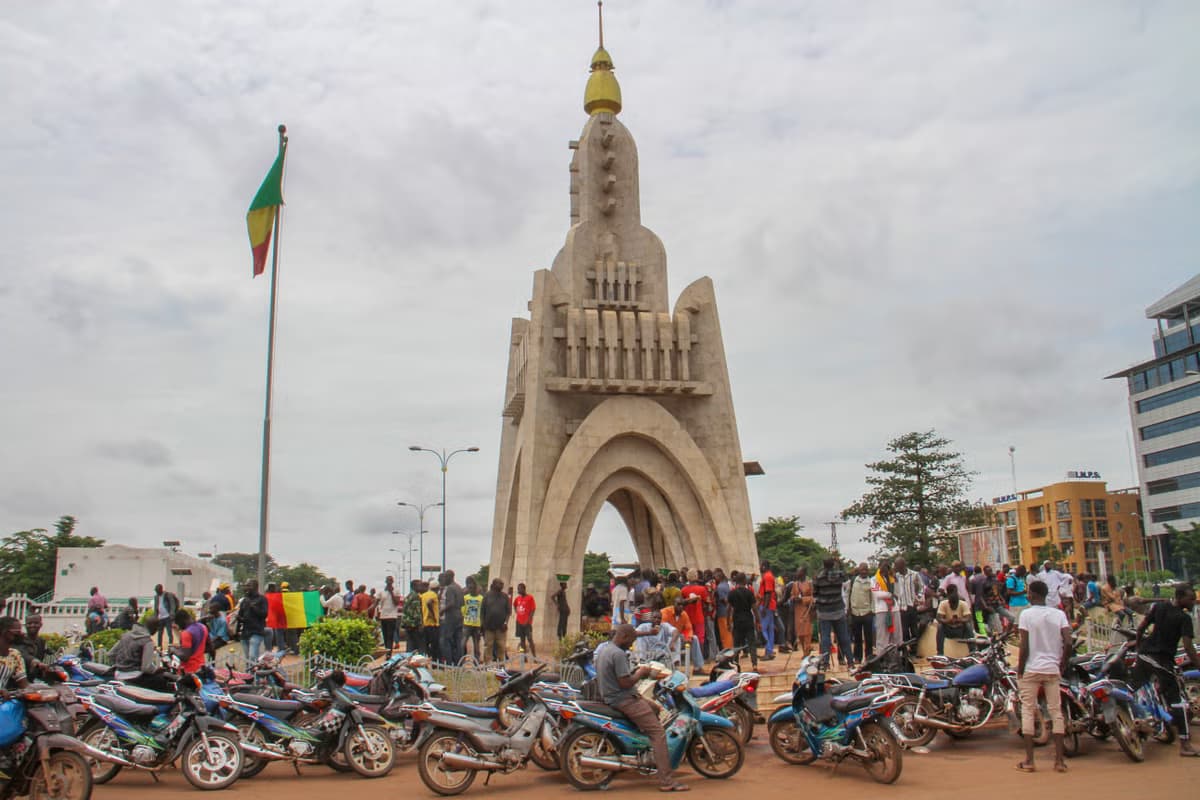We're loading the full news article for you. This includes the article content, images, author information, and related articles.
Residents in Bamako face severe fuel shortages and rising prices following a blockade imposed by Jama'at Nusrat al-Islam wal-Muslimin (JNIM), an al-Qaeda-linked militant group, threatening to cripple Mali's already fragile economy.

Long queues at petrol stations have become a common sight in Mali's capital, Bamako, as residents grapple with a severe fuel shortage. The crisis stems from a blockade on fuel imports declared in early September by Jama'at Nusrat al-Islam wal-Muslimin (JNIM), an al-Qaeda-linked militant group. The militants have relentlessly attacked fuel tankers en route from neighbouring Senegal and Côte d'Ivoire, plunging the landlocked West African nation into an economic and humanitarian crisis.
Amadou Berthé, a bank employee in Bamako, recounted travelling 20 kilometres by motorcycle taxi in a desperate search for fuel after his car broke down. He visited over 20 petrol stations without success. This struggle highlights the immediate impact on daily life for ordinary Malians.
Mali has endured years of escalating insecurity since militants seized control of its northern regions in 2012. Violence, initially concentrated in the north, has steadily spread southward, with Bamako experiencing deadly attacks in recent years. JNIM, formed in 2017 through the merger of several al-Qaeda affiliates, including Ansar al-Din and Al-Qaeda in the Islamic Maghreb (AQIM), has been a significant force in this insurgency.
The current fuel blockade marks a strategic shift by JNIM, focusing on economic strangulation rather than direct military confrontation. Analysts, such as Beverly Ochieng of Control Risks Group, suggest that JNIM aims to pressure commercial operators and residents to distance themselves from the military authorities, thereby undermining the government's legitimacy.
In response to the blockade, the Malian army has initiated escorts for some truck convoys along routes between Bamako and the borders with Senegal and Côte d'Ivoire. Additionally, the military launched ground and air operations in early September in the Diéma, Nioro, and Kayes areas, reportedly destroying several militant strongholds and neutralising insurgents.
Despite these efforts, attacks persist. On September 21, three tankers were ambushed and set ablaze between Sikasso and Bamako, resulting in the deaths of two Ivorian drivers and an apprentice. The Malian Petroleum Importers Association reported last month that over 100 tanker trucks have been burned and destroyed by JNIM fighters.
The humanitarian situation in Mali is dire, with over one-third of the population requiring assistance. The blockade exacerbates existing challenges, including food insecurity and displacement. The International Rescue Committee (IRC) warned in September 2023 of growing shortages of supplies, food, and fuel, particularly in regions like Timbuktu.
Mali, a landlocked nation, relies heavily on imports from Senegal and Côte d'Ivoire for essential goods, including fuel and cement. Economist Modibo Mao Makalou highlighted that fuel and its derivatives constitute 33% of Mali's total imports, underscoring the crippling consequences of the blockade.
The gold industry, which accounts for approximately 80% of Mali's export earnings, faces significant disruption. Around 70 fuel trucks destined for Allied Gold's Sadiola mine are currently stranded due to security concerns, creating a critical supply chain bottleneck. Some fuel importers have resorted to selling fuel at the border to traders who then assume the risk of transporting it into Mali, albeit at reduced profits.
The long-term sustainability of military escorts for fuel convoys remains a critical question as JNIM appears to be employing a strategy of attrition. The Malian government, which came to power through coups in 2020 and 2021, faces mounting security and governance challenges, complicating its response to the militant blockade.
The ongoing crisis underscores the urgent need for a comprehensive strategy to secure vital supply routes and address the root causes of insecurity in Mali. The international community continues to watch closely as the situation unfolds, with concerns about regional stability and humanitarian impact.
The effectiveness of the Malian army's escort operations and the government's ability to maintain fuel supplies to Bamako will be crucial in the coming weeks. Observers will also be monitoring for any shifts in JNIM's tactics and the broader humanitarian consequences of a prolonged blockade.
Keep the conversation in one place—threads here stay linked to the story and in the forums.
Sign in to start a discussion
Start a conversation about this story and keep it linked here.
Other hot threads
E-sports and Gaming Community in Kenya
Active 9 months ago
The Role of Technology in Modern Agriculture (AgriTech)
Active 9 months ago
Popular Recreational Activities Across Counties
Active 9 months ago
Investing in Youth Sports Development Programs
Active 9 months ago